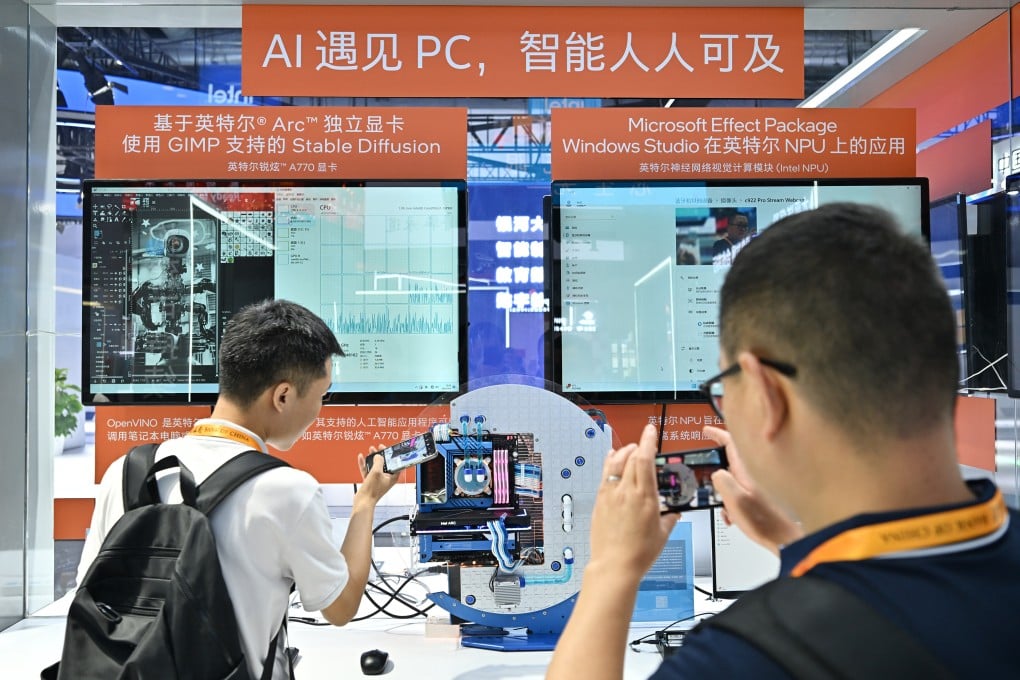Advertisement
Intel sees massive demand for AI chips designed for China amid LLM boom and US export curbs, report says
- Sales of Intel’s Gaudi2 processors, tailored to comply with US trade restrictions, have been strong since their launch in July, Taiwanese media reported
- Under soaring demand, the US firm has placed more orders with its supplier Taiwan Semiconductor Manufacturing Co (TSMC), the report said
Reading Time:2 minutes
Why you can trust SCMP
9

Ben Jiangin Beijing
US tech giant Intel Corp has seen soaring demand for its artificial intelligence (AI) chips designed specifically for clients in China, as mainland companies rush to improve their capability in ChatGPT-like technology, according to a report by Taiwanese media DigiTimes.
Sales of Intel’s Gaudi2 processors, which are tailored to comply with US export curbs while catering to Chinese clients’ demand for AI chips, have been strong since their launch in July, prompting the Californian firm to place more orders with its supplier Taiwan Semiconductor Manufacturing Co (TSMC), the report said, citing unnamed industry sources.
TSMC and Intel, which has not disclosed its recent sales performance in mainland China, did not immediately respond to requests for comment.
Advertisement
Intel’s chief financial officer David Zinsner said at a conference earlier this month that the company had seen more customers looking to its Gaudi chips as an alternative to processors that were in short supply.
A race by Chinese tech firms to build their own large language models (LLMs) has sparked robust demand for advanced chips used to train algorithms that support intelligent chatbots similar to Microsoft-backed OpenAI’s ChatGPT.
Advertisement
Advertisement
Select Voice
Select Speed
1.00x
